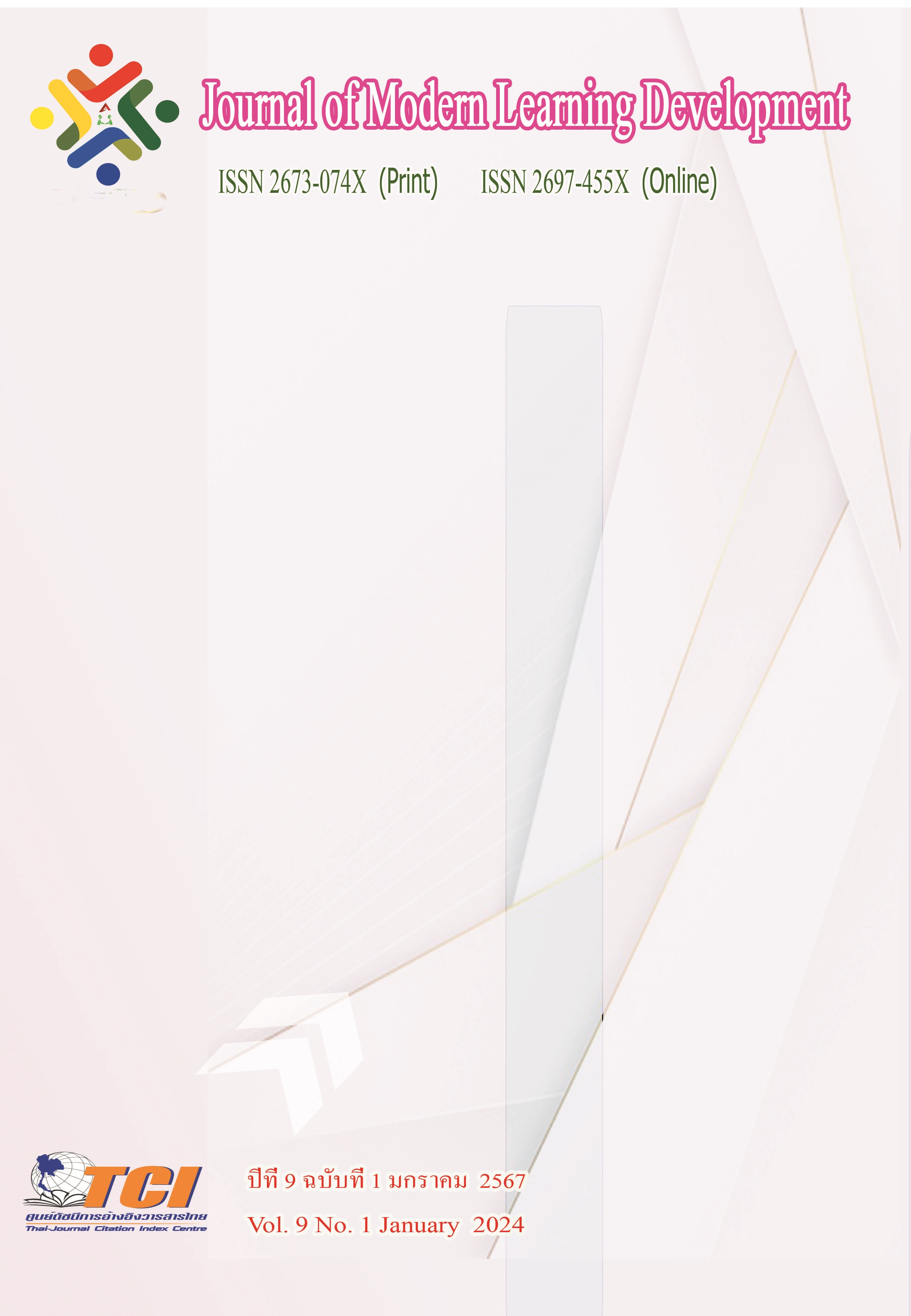The Causal Relationship Model of Bad Experience to Brand Hated and Negative Word of Mouth: A Case Study of Low-cost Airline Business In Khon Kaen Province
Main Article Content
Abstract
This study was undertaken to study the causal relationship between bad experiences to brand hate and negative word of mouth of the low-cost airline business in Khon Kaen province. Collecting the survey data about 260 individuals by using convenience sampling approaches. Along with the methodology research in marketing, there were three mains session contained: 1) analysis of samples characteristic and behavior of using low-cost airline service which were done by using descriptive statistics including frequency, percentage, mean, and standard deviation to summarize overall data. 2) analysis of causal relationship between bad experience to brand hate and negative word of mouth which was done by using structural equation to estimate the parameter for inferring the empirical behavior.
The empirical result demonstrated that the negative word of mouth behavior was caused by having a bad experience with service and then comes up with business brand hated with statistically significant. Moreover, in this case there was not a direct relationship between having the bad experience with service to negative word of mouth behavior exist with statistically significant.
Article Details
References
กรมท่าอากาศยาน. (2566). ข้อมูลสถิติการขนส่งทางอากาศของท่าอากาศยานในสังกัดกรมท่าอากาศยาน.
ออนไลน์. สืบค้นเมื่อ 4 ตุลาคม 2566. แหล่งที่มา: https://web.archive.org/web/202103100 22318/https://www.airports.go.th/th/content/349.html
เนตรรุ้ง อยู่เจริญ. (2553). ปัจจัยเชิงสาเหตุที่ส่งผลต่อการมีส่วนร่วมในการประกันคุณภาพการศึกษาของครูสถานศึกษาสังกัดสำนักงานคณะกรรมการการอาชีวศึกษาในเขตกรุงเทพมหานคร. วิทยานิพนธ์ปริญญาการศึกษามหาบัณฑิต. บัณฑิตวิทยาลัย: มหาวิทยาลัยศรีนครินทรวิโรฒ.
สุภมาส อังศุโชติ, สมถวิล วิจิตรวรรณา และ รัชนีกูล ภิญโญภานุวัฒน์. (2551). สถิติการวิเคราะห์สำหรับการวิจัยทางสังคมศาสตร์และพฤติกรรมศาสตร์ : เทคนิคการใช้โปรแกรม LISREL. กรุงเทพมหานคร:
มิสชั่น มีเดีย
Alexandra, S. (2017). Brand Hate and Brand Forgiveness - A Dynamic Analysis.
Master’s Thesis in Marketing, Rolling College.
Baumeister, R., Bratslavsky, E., Finkenauer, C. and Vohs, K. (2001). Bad is stronger than good.
Review of General Psychology, 5, 323-370.
Breivik, E. and Thorbjørnsen, H. (2008). Consumer brand relationships: an investigation of two alternative models. Journal of the Academy of Marketing Science. 36 (4), 443-472.
Bonifield, C. and Cole, C. (2007). Affective responses to service failure: anger, regret, and retaliatory versus conciliatory responses. Marketing Letters. 18, 85-99.
Chen, Y., & Shang, Y. F. (2018). Factors influencing users' word-of-mouth intention regarding mobile apps: An empirical study. The Journal of Industrial Distribution & Business. 9 (1), 51
East, R., Hammond, K., & Lomax, W. (2008). Measuring the impact of positive and negative word of mouth on brand purchase probability. International journal of research in marketing. 25 (3), 215-224.
Hair, J. F., Ortinau, D. J., & Harrison, D. E. (2010). Essentials of marketing research. 2nd edition. New York, NY: McGraw-Hill/Irwin.
Halstead, D. (1989). Expectations and disconfirmation beliefs as predictors of consumer satisfaction, repurchase intention, and complaining behavior: an empirical study, Journal of Consumer Satisfaction, Dissatisfaction, and Complaining Behavior. 2 (1), 17-21.
Hegner, S. M., Fetscherin, M., & Van Delzen, M. (2017). Determinants and outcomes of brand hate. Journal of Product & Brand Management. 26 (1), 13-25.
Hultén, B., Broweus, N., & Dijk, M. V. (2009). What is sensory marketing? In Sensory marketing. Palgrave Macmillan, London.
Lee, J., & Lee, J. N. (2009). Understanding the product information inference process in electronic word-of-mouth: An objectivity-subjectivity dichotomy perspective. Information and Management. 46 (5), 302-311
Monga, A. (2002). Brand as a relationship partner: gender differences in perspectives. Advances in Consumer Research. 29 (1), 36-41.
Oliver, R. (1980). A cognitive model of the antecedents and consequences of satisfaction decisions, Journal of Marketing Research. 17, 460-469.
Rahila, A. & Zillur, R. (2022). Brand hate: a literature review and future research agenda.
European Journal of Marketing. 56 (7), 2014-2051.
Sabrina M. Hegner, Marc Fetscherin, Marianne van Delzen, (2017). Determinants and outcomes of brand hate. Journal of Product & Brand Management. 26 (1), 13-25.
Singh, H. (2021). Building effective blended learning programs. In Challenges and Opportunities for the Global Implementation of E-Learning Frameworks (15-23). IGI Global.
Singh, R., & Nika, A. S. (2020). Assessing the effect of airline service quality on image and post purchase behavioral intention. Enlightening Tourism A Path Making Journal. 10 (2), 323-357.
Sternberg, R.J. (1986). A triangular theory of love. Psychological Review. 93 (2), 119-135.


